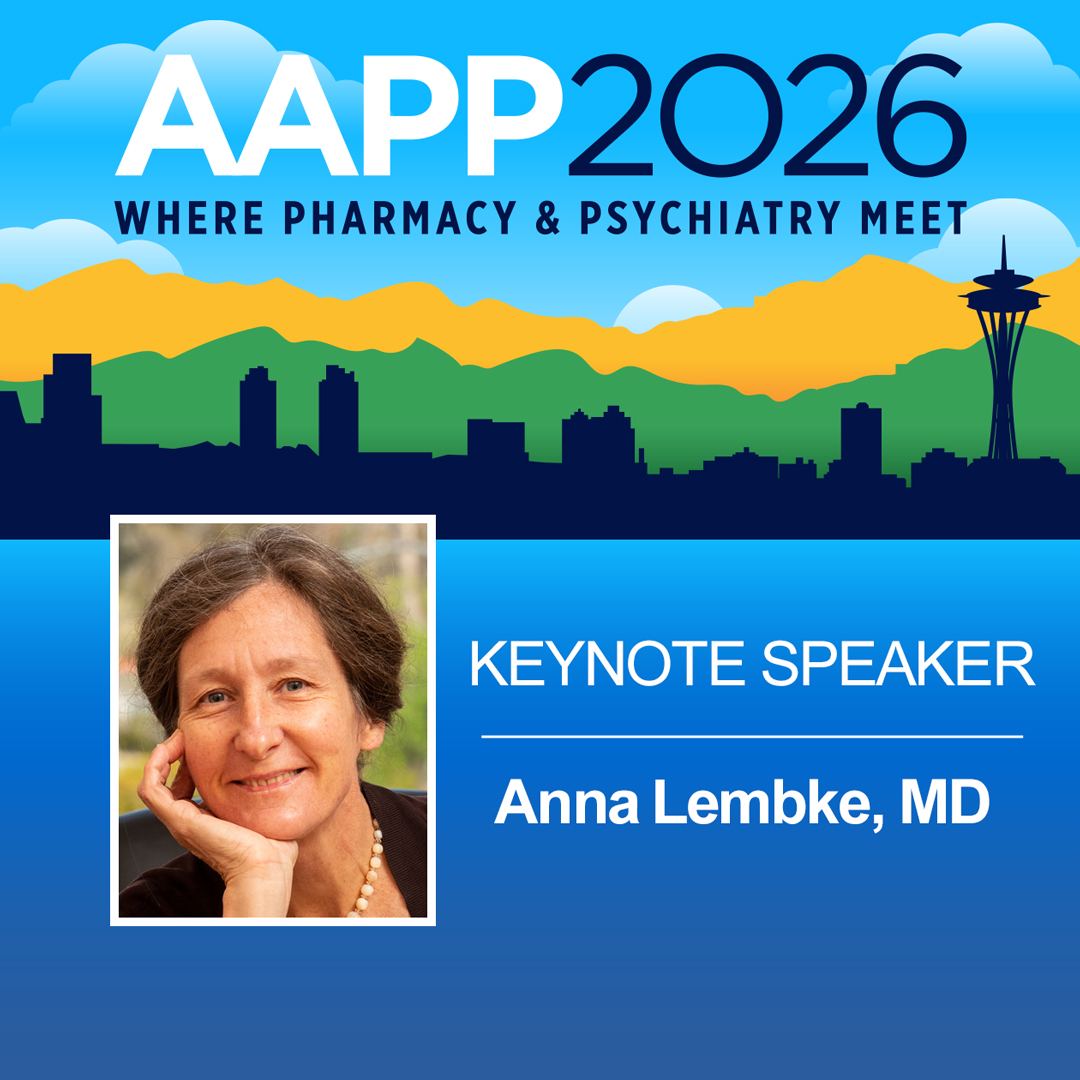Course Description

In today’s dopamine-saturated world, many people find themselves stuck in cycles of overconsumption that leave them feeling more stressed, anxious, or depressed. This session explores how the brain tries to maintain a balance between pleasure and pain, and what happens when that balance is repeatedly pushed by high-dopaminergic rewards, substances, or habits. Participants will learn how chronic overstimulation shifts mood and motivation, and why practices like dopamine fasting can help reset the brain’s reward pathways. Psychiatric pharmacists will walk away with practical insights to better understand patient behaviors and support healthier coping strategies.
This session is generously sponsored by the AAPP Foundation! To support future programming, please consider giving a donation.

Learning Objectives
- Explain the neuroscience of pleasure and pain and what happens in the brain as we repeatedly consume high-dopamine rewards.
- Describe how chronic intoxicant exposure disrupts homeostasis, shifting the hedonic set-point toward pain and increasing depression and anxiety.
- Identify dopamine fasting as a practical, feasible, and effective way to reset reward pathways.
- Review the science of hormesis: The intentional pursuit of pain/discomfort to improve mood and reduce pain.
Target Audience
If you are a pharmacist, nurse practitioner, or other health care professional involved in the comprehensive medication management of individuals living with mental health and/or substance use disorders, we invite you to participate in this course.
Faculty

View biographical information
Anna Lembke, MD
Professor, Department of Psychiatry
Stanford University
Stanford, CA
Anna Lembke, MD is professor of psychiatry at Stanford University School of Medicine and chief of the Stanford Addiction Medicine Dual Diagnosis Clinic. A clinician scholar, she is the author of more than a hundred peer-reviewed publications, has testified before the United States House of Representatives and Senate, and has served as an expert witness in federal and state opioid litigation. She is an internationally recognized leader in addiction medicine treatment and education.
In 2016, she published Drug Dealer, MD – How Doctors Were Duped, Patients Got Hooked, and Why It’s So Hard to Stop (Johns Hopkins University Press, 2016), highlighted in the New York Times as one of the top five books to read to understand the opioid epidemic (Zuger, 2018).
Dr. Lembke appeared in the Netflix documentary The Social Dilemma, an unvarnished look at the impact of social media on our lives.
Her book, Dopamine Nation: Finding Balance in the Age of Indulgence (Dutton/Penguin Random House, August 2021) was an instant New York Times and Los Angeles Times bestseller, has been translated into more than 35 languages, and explores how to moderate compulsive overconsumption in a dopamine-overloaded world. Her just released Official Dopamine Nation Workbook provides a step-by-step guide for dopamine fasting, full of interactive exercises and practical tips for finding balance.
Course Requirements
To receive ACPE credit for this session, you must:
- Register for this course.
- Review the full content of the activity and reflect upon its teachings.
- Complete the evaluation at the end of the activity.
- Provide the necessary details in your profile to ensure correct reporting by AAPP to CPE Monitor.
Continuing Education Credit and Disclosures
Activity Dates: 4/19/2026-4/19/2029
ACPE Contact Hours: 1.0
ACPE Number: 0284-0000-26-014-H01-P (Knowledge)
Nursing Credit Reminder: Note that ACPE credit is accepted for ANCC Certification Renewal and AANPCB advanced practice provider content. For specific questions related to your organization's acceptance of ACPE continuing education units, please contact your organization directly.
![]() The American Association of Psychiatric Pharmacists is accredited by the Accreditation Council for Pharmacy Education as a provider of continuing pharmacy education.
The American Association of Psychiatric Pharmacists is accredited by the Accreditation Council for Pharmacy Education as a provider of continuing pharmacy education.
AAPP owns the copyright, is licensed or has received permissions for use of, or is otherwise permitted to use copyrighted materials within any CPE activity. Authors and speakers are required to obtain necessary copyright permissions for content in CPE activities. AAPP complies with copyright laws and regulations.
View disclaimer and disclosure of off-label use
Off-Label Use: This educational activity may contain discussion of published and/or investigational uses of agents that are not indicated by the FDA (see faculty information). The opinions expressed in the educational activity do not necessarily represent the views of AAPP and any educational partners. Please refer to the official prescribing information for each product for discussion of approved indications, contraindications, and warnings.
Disclaimer: Participants have an implied responsibility to use the newly acquired information to enhance patient outcomes and their own professional development. Any procedures, medications, or other courses of diagnosis or treatment discussed or suggested in this activity should not be used by clinicians without evaluation of their patient’s conditions and possible contraindications on dangers in use, review of any applicable manufacturer’s product information, and comparison with recommendations of other authorities. Please refer to the official prescribing information for each product for discussion of approved indications, contraindications, and warnings.
View fair balance and integrity statement
It is the policy of AAPP to ensure independence, balance, objectivity, scientific rigor, and integrity in continuing education activities. Those involved in the development of this continuing education activity have made all reasonable efforts to ensure that information contained herein is accurate in accordance with the latest available scientific knowledge at the time of accreditation of this continuing education activity. Information regarding drugs (e.g., their administration, dosages, contraindications, adverse reactions, interactions, special warnings, and precautions) and drug delivery systems is subject to change, however, and the reader is advised to check the manufacturer’s package insert for information concerning recommended dosage and potential problems or cautions prior to dispensing or administering the drug or using the drug delivery systems.
Fair balance is achieved through ongoing and thorough review of all materials produced by faculty, and all educational and advertising materials produced by supporting organizations, prior to educational offerings. Approval of credit for this continuing education activity does not imply endorsement by AAPP for any product or manufacturer identified.
